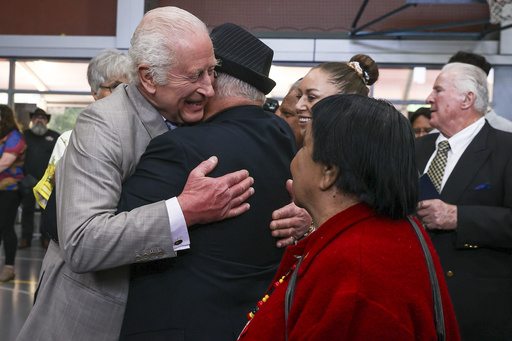
MELBOURNE, Australia — King Charles III is concluding his first tour of Australia as a reigning British monarch, a visit that has sparked discussions among anti-monarchist groups regarding the potential for an Australian citizen to become the head of state.
Controversy arose during the visit when Indigenous senator Lidia Thorpe confronted Charles at a reception, declaring he was not a legitimate king and that Australia did not belong to him.
Esther Anatolitis, a co-chair of the Australian Republic Movement, which advocates for the replacement of the British monarchy with an Australian head of state, noted that although many people attended the events featuring the king and Queen Camilla, their numbers were lower than those who welcomed Queen Elizabeth II during her visit to Australia 70 years ago.
During the queen’s first visit in 1954, approximately 75% of Australians had the chance to see her in person.
“While it’s normal for Australians to greet the king and queen warmly, it raises questions about having a head of state chosen by birthright from another nation,” Anatolitis remarked. She recognized the challenge of amending the constitution, as Australians have not done so since 1977.
“It’s quite a hurdle we face,” she acknowledged.
Constitutional expert Anne Twomey expressed that King Charles would likely not need to be concerned about Australia transitioning to a republic during his lifetime.
She cited last year’s failed referendum aimed at establishing an Indigenous advisory body as an example of the difficulty in altering the constitution. “People generally are averse to constitutional changes,” Twomey stated. “Given the complexities involved in a republic, it would be much more susceptible to defeat from scare tactics and opposition.”
“If there isn’t widespread support and a compelling reason behind a push for change, it is almost certain to fail,” she added.
Philip Benwell, the national chair of the Australian Monarchist League, which aims to maintain ties to Britain, observed the incident involving Thorpe and felt it might have inadvertently strengthened their position rather than damaged it.
Thorpe’s actions have faced criticism, even from other Indigenous leaders, for their lack of respect towards the king. However, Thorpe stood by her approach, arguing that the real violence was the display of wealth and colonial authority by the monarch.
“The violence lies in the recognition of the colonizer asserting his control, with taxpayer funding supporting this,” she explained in an interview.
Prime Minister Anthony Albanese has voiced support for transitioning to a republic but has stated that a referendum on the matter is not likely during his first three-year term. However, he has indicated that the possibility exists if his Labor Party is successful in upcoming elections due by May next year.
In 1999, Australians voted to retain Queen Elizabeth II as their head of state, a decision often attributed to uncertainty over the selection process for a president rather than strong support for the monarchy itself.
Sydney University royal historian Cindy McCreery suggested that Australia may not yet be ready to make the shift towards a republic.
“There’s certainly interest in the idea of becoming a republic; however, we should recognize that a referendum on this topic is unlikely to happen soon,” McCreery stated.
“As a historian, I believe that successfully advocating for a republic will require more effort in genuinely addressing our complex history,” she added.
“Transitioning to a republic does not equate to escaping British colonialism; it should reflect a commitment to engaging with our past in an honest and reflective manner,” she concluded.
Charles’s visit to Australia was abbreviated due to ongoing cancer treatment, and he is scheduled to arrive in Samoa on Wednesday.
